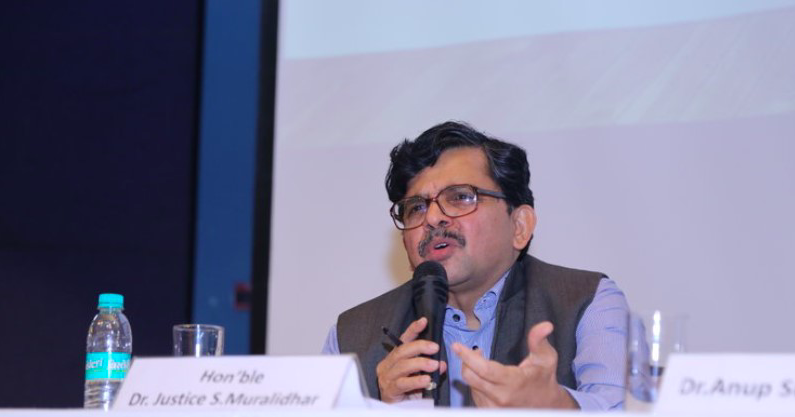The Capital has been witnessing high end communal clashes over the last couple of days. The northeastern parts of Delhi had been severely hit by a wave of communal frenzy. What started off as a clash between Pro-CAA and anti-CAA protestors in Northeastern Delhi gradually turned into a full blown communal affair claiming many lives, injuring hundreds of people and bringing about massive damage to houses, shops and public property in the region. The inaction of the Delhi Police was also widely condemned as many reports suggested that the police played the role of a mute spectator and hardly did anything to bring the situation under control.
It is in this context that the transfer of Justice S Muralidhar and the action taken against him become extremely important. Justice S Muralidhar was responsible for ordering an FIR against the hate speeches that allegedly led to the outbreak of violence in Northeastern Delhi. Following his decision on the filing of FIRs against the creators of violence, he was transferred to the Punjab and Haryana High Court following approval of February 12 recommendation to the affect from the Supreme Court collegium.
A notification from the Department of Justice in the Ministry Law and Justice said “In exercise of the power conferred by Clause of Article 222 of the Constitution of India, the President, after consultation with the Chief Justice of India, is pleased to transfer Justice S Muralidhar, Judge of the Delhi High Court, as a judge of the Punjab and Haryana High Court and to direct him to assume his charge of his office in the Punjab and Haryana High Court.
Justice S Muralidhar was known for his bold decisions and pronouncements on communal violence and personal liberty. He is known for the landmark judgements that he made in the context of the Hashimpur mass killing case and for convicting Congress leader Sajjan Kuar for his role in the 1984 anti-sigh riots. S Muralidhar was also part of the two-judge bench that delivered the landmark judgement which decriminalised homosexuality.
Commenting on the speculations raised about the transfer of Justice S Muralidhar and the critique that has been surrounded such a decision, Union Law Minister Ravi Shankar Prasad said that a “well settled” process has been followed for the transfer and that the consent of the judge was taken in the matter. Justice S Muralidhar had been issued a transfer notice only a couple of hours after he pulled up the Delhi Police for its inaction in registering FIR against the leaders who had made “hate speeches” that allegedly sparked off the communal tensions in northeastern Delhi.
Ravi Shankar Prasad also hit back at the Congress and said that it had been engaged in over-politicising this event and that it was nothing but a routine transfer and had nothing to do with the decision that S Muralidhar had made in the aftermath of the communal violence that broke out in the Capital.
He also stressed that the Congress was falsely accusing the Centre of muzzling the judicial system .
Protesting Justice S Muralidhar’s transfer to Punjab and Haryana Court, the Delhi High Court Bar Association has urged the collegium to revisit and recall its recommendations saying that such transfers had a tendency to erode and dislodge the faith of the common litigant as far as the justice dispensation system was concerned.














